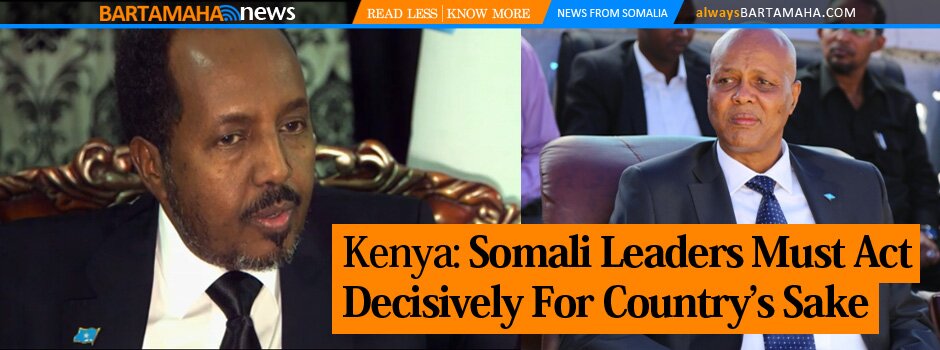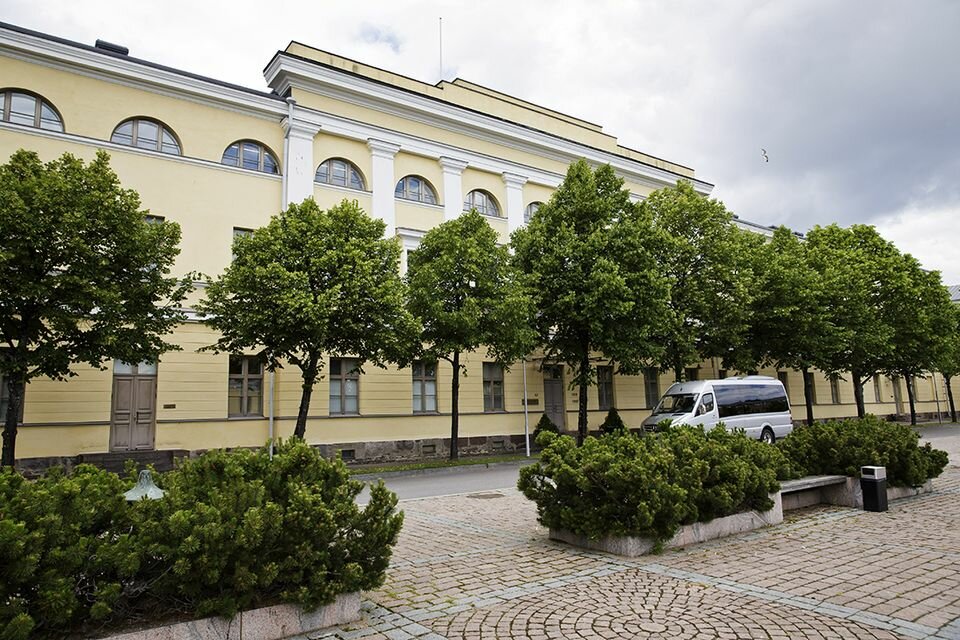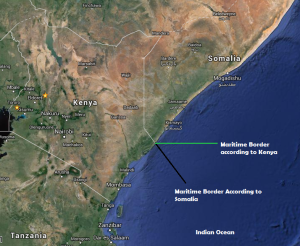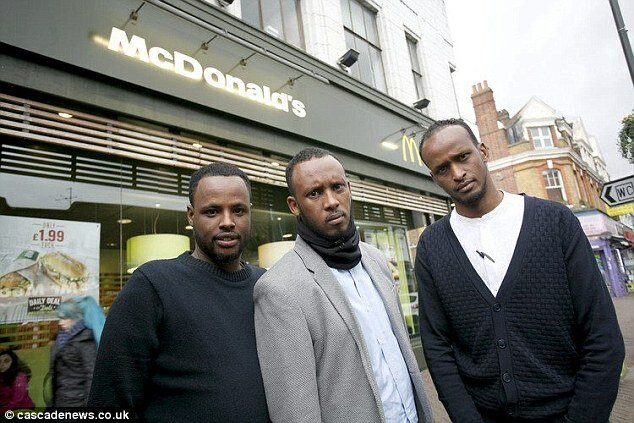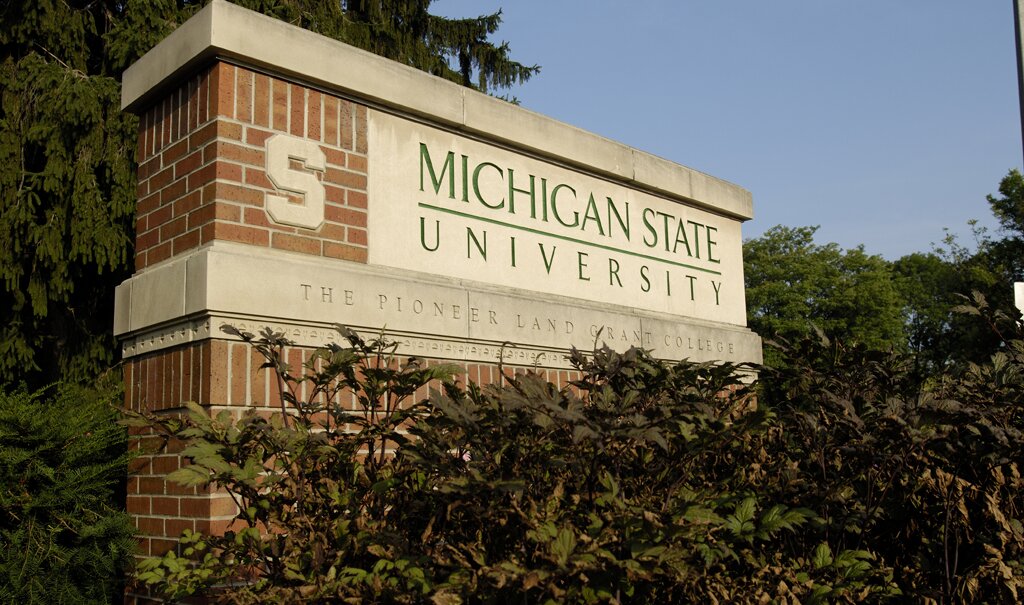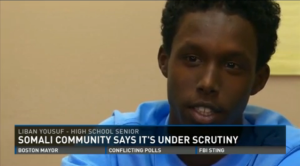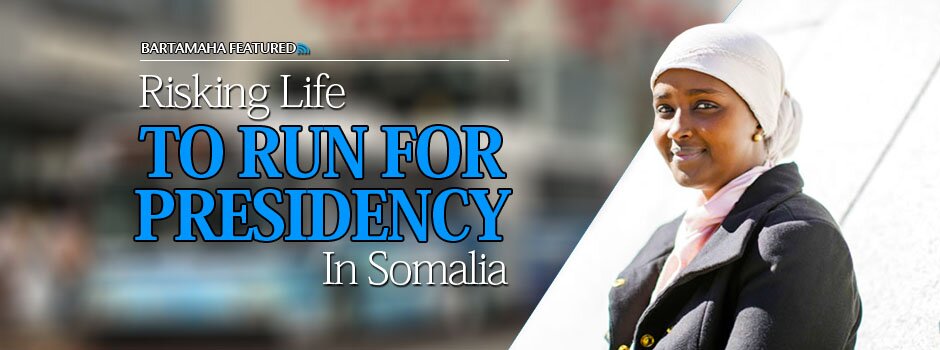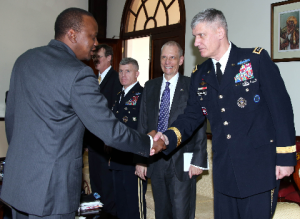Somali woman honored for work on education in Burlington
 Nimo Girreh grew up in Northern Somalia with a mother who could not write her own name and wanted something better for her daughter. That daughter would eventually graduate from college and make a new life for herself in Vermont.
Nimo Girreh grew up in Northern Somalia with a mother who could not write her own name and wanted something better for her daughter. That daughter would eventually graduate from college and make a new life for herself in Vermont.
“She knew the importance of education,” Girreh said of her mother.
Sunday, Girreh will take a free trip to Washington, D.C., for a conference headlined by U.S. Education Secretary Arne Duncan. She will represent Vermont at the Mom Congress on Education after being selected by judges at Parenting magazine. Girreh’s local supporters nominated her for making a difference in Burlington, particularly through her work to help Somali refugees and newcomers from other countries thrive in and out of the classroom.
“My main goal is education,” Girreh said. “That’s the way we can change this world, give the light.”
The trip comes at a time when many of the children Girreh first met as new arrivals to Burlington seven years ago are in high school and fluent speakers of English. Some will soon head to college, she said. “Now they correct my accent. It is so amazing.”
For the community
Girreh, 54, lives in South Burlington and formerly lived in Burlington. She is the mother of two grown daughters, both graduates of the University of Vermont. One of them, Mariam Dodi, works in accounting in North Carolina. The other, Nafisa Dodi, is a para-educator at Champlain Elementary in Burlington who is thinking about graduate school or the Peace Corps. She describes her mother as a person who does not give to receive.
“Everything she does for the community, she just sees it as something she should do, something everyone should do,” said Dodi, who will accompany her mother to Washington.
In addition to volunteering at schools and nonprofits ranging from King Street Youth Center to the Visiting Nurse Association, Girreh helps out with personal requests that come in frequently via telephone — a mother who needs help with a sick child, a person who needs a ride to work.
“She’s definitely a mother to all, a mother to everyone,” Dodi said.
Arrival in Vermont
Girreh’s early years were spent near the cities of Borama and then Hargeisa. Her father was a businessman who had two wives, not uncommon for Muslim families in the region. Although her brothers went to college, Nimo was the first girl in the family to go to high school and university. She spoke Somali at home and Arabic at school, where the number of girls decreased with each advancing grade. About a half-dozen graduated high school in her class.
Then it was off to Aligarh Muslim University in India, where Girreh earned a degree in economics in 1981. Along the way she married, had two daughters and lived in United Arab Emirates as civil war ravaged Somalia. In the late 1980s, she entered the U.S. in Florida on a student visa. She applied for political asylum, which was eventually granted. Most of her extended family fled the violence in Somalia. One sister died in the war. From Florida, Girreh traveled north to Vermont to be near family in Canada.
“After the war, I wanted a safe place and to be close to family,” she said. “I decided this is the place I want to raise my girls.”
Called to help
Girreh raised her two daughters alone after her husband left the family. Her main job was at IBM in Essex Junction, working the overnight shift. She also worked as a retail clerk and bank teller. She arranged her jobs so as to be with the girls after school and attend school events during the day if needed. Her daughters were the only Somalis at Edmunds Elementary School in Burlington in the early 1990s, she said. She earned a second degree at now-closed Trinity College in 2001 and became a U.S. citizen a year later.
Her daughters were teenagers in 2003 when the Vermont Refugee Resettlement Agency started to bring about 200 Somali refugees to Burlington.
Local school and community leaders asked Girreh to help the new families get acclimated. She took a leave from IBM to volunteer and then to work — first as a caseworker for Refugee Resettlement and later as a home-school liaison for the Burlington school district. Girreh helped with everything from school forms to doctor’s appointments to tutoring. Some families were confused by the U.S. school system, as was Girreh initially. In Burlington, as in most of Vermont, students typically advance to the next grade even if they are significantly behind. In Somalia, students must pass tests to move up.
“Back home you fail, you don’t go to the next class level,” Girreh said.
Parents sometimes wrongly assume that children are doing fine when they need help, Girreh said. Her advice to all parents is to stay involved. Go to teacher conferences, look for supports if necessary. “Just do your part as a parent.”
Family matters
The wave of Somali families who arrived around 2003 have made tremendous progress, although it has been easier for the younger children than for the older ones, Girreh said. New issues are emerging, such as language barriers within families. Some young children speak English but not the Mai-Mai dialect that their parents speak. Girreh hears parents asking their older children to translate what they are saying to their younger children. “So there is this gap,” Girreh said.
Customs from the old land — such as marrying young and starting a family — can make it difficult to complete school here. Girreh volunteers at Burlington High School, where she urges young Somali mothers not to drop their education. She arranges lectures and visits from professional women who talk about their careers and their educational backgrounds. You can’t tell people what choices to make, Girreh said, “but at least you can give them knowledge.”
Choice of custom
Girreh wears a colorful scarf or hijab draped over her head. It’s a custom she did not follow growing up Muslim in Somalia but adopted when she came to the U.S., partly, she says, in response to what she saw as exploitation of women’s bodies in advertising and the media. She doesn’t want to be judged on the length or look of her hair, and for her, the veil emphasizes that. “That’s the way for me,” Girreh said.
Her own daughters did not wear headscarves growing up, partly because at that time in Burlington, no other students did, Girreh said. “They had enough to deal with. … So I make this compromise,” she said.
Now one daughter, Mariam, has recently started to wear a head scarf of her own accord, while Nafisa does not.
“I think one of the amazing things about my mom is that she’s never forced us to do anything,” Nafisa Dodi said. “She’s never forced us to pray, to fast, to wear certain clothing. She’s given us the guidelines of what it is to be a good person.”
The full body tent or burka that women are required to wear in some Islamic countries and families is a not a function of religion, but of culture, Girreh said. The burka — “that is not Islam,” she said.
Hope for future
Girreh is returning to her job at IBM after a leave of absence. Some day, perhaps when she retires, she would like to get involved in an international effort to bring education to girls who are denied it.
She is sensitive to blanket references to “Islamic terrorists” in the media and feels the religion is sometimes misportrayed with unfair generalizations about violence and oppression of women. Girreh said mothers have a special status in Islam. Where there is terrorism, education of women might help end it, she suggested. The young girl who goes to school, who grows up with an education?
“That mother won’t send her child to kill anyone,” Girreh said.
___
Contact Molly Walsh at 660-1874 or
Comments
comments
 Calendar
Calendar









